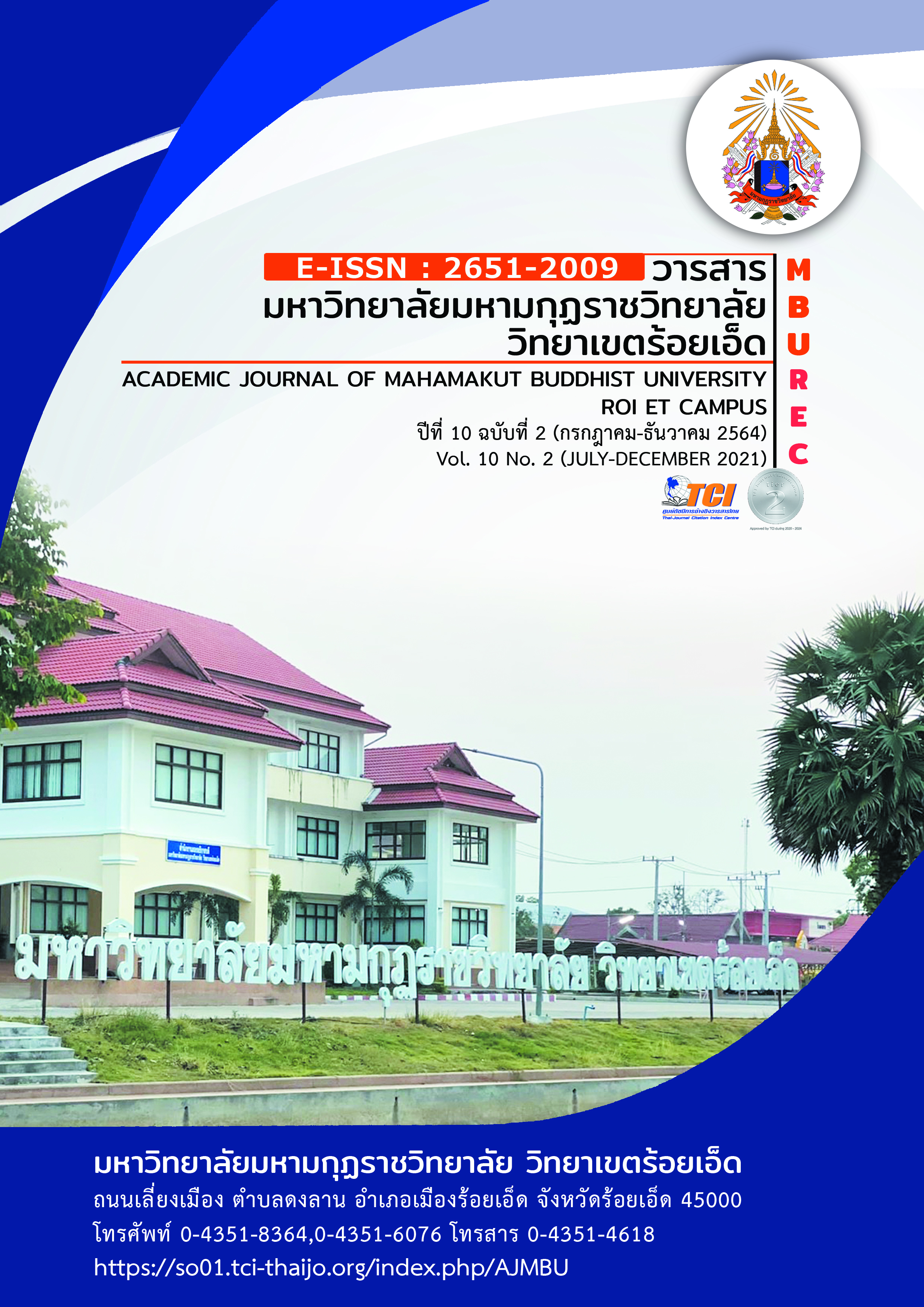The Arrangement the Teaching and Learning According Basic Non-formal Education Courses by Integration to Buddhism for Inmates in Prison
Main Article Content
Abstract
The objectives of the research article were 1)to study learners' opinions per the arrangement the teaching and learning according basic non-formal education courses by integration to Buddhism for inmates in prison, 2) to study the suggestions about the arrangement the teaching and learning according basic non-formal education courses by integration to Buddhism for inmates in prison according to the views of officials from Lampang Central Prison, 3) to study appropriate guidelines in the arrangement the teaching and learning according basic non-formal education courses by integration to Buddhism for inmates in prison. It is an integrated research method both quantitative and quality. Data provider group is male inmate and the staffs of Lampang Central Prison. The device used to collect the information is a questionnaires, interview forms and observation forms. The statistics used in this research are mean and standard deviation. The qualitative research uses descriptive analysis.
The research results found that: 1. The opinions of learners towards teaching and learning management according to the curriculum of non-formal education with basic integrated Buddhists in Lampang Central Prison Overall, at high level. 2. The recommendations on teaching and learning in the basic non-formal education curriculum with integrated Buddhists to inmates According to the view of Lampang Central Prison officials 1) Learning Process: Prisons should have a variety of learning processes. 2) The design of learning management: Prisons should design learning activities in which learners can apply knowledge gained from learning to apply in their lives. 3) Instructor's role: Teachers should provide experiences for learners to practice thinking, practice and improve. 4) The role of learners: learners should apply the knowledge gained to benefit themselves and the public as well. 3. Suitable guidelines for teaching and learning, In side of Learning process, Prison should emphasize skills of thinking process that enhance of morality by integration to Buddhism to students. In side of designing learning management, Prison should arrange to learners have participate in planning organizing activities Strengthen experience in learning source in prison, should to learners Integration the subject group get in with the Buddhist doctrine that will be applied in life. In side at is role of the instructor, They should arrange experience to students expression in way have the idea creative, should give to known of research, experiment, practice, and solve problems by oneself. In side at is the role of learners, They should seek knowledge by oneself from various learn sources Inside the prison, should use results of assessment is base of development in learning process of self in future.
Article Details
References
ชาญชัย อาจิณสมาจาร. (2545). สุดยอดเทคนิคสู่คู่มือครูอาชีพ. กรุงเทพมหานคร : จรัลสนิทวงศ์.
ปรัชญา เวสารัชช์. (2554). หลักการจัดการศึกษา. กรุงเทพมหานคร : ภาพพิมพ์.
พระพรหมคุณาภรณ์ (ป.อ.ปยุตฺโต), (2551). พจนานุกรมพุทธศาสตร์ ฉบับประมวลธรรม. กรุงเทพมหานคร : มหาจุฬาลงกรณราชวิทยาลัย.
เรียม ศรีทอง. (2542). พฤติกรรมมนุษย์กับการพัฒนาตน. กรุงเทพมหานคร : เธิร์ดเวฟ เอ็ดดูเคชั่น.
สำนักงานคณะกรรมการการศึกษาแห่งชาติ. (2545). พระราชบัญญัติการศึกษาแห่งชาติ พ.ศ. 2542 และที่แก้ไขเพิ่มเติม (ฉบับที่ 2) พ.ศ. 2545. กรุงเทพมหานคร : พริกหวานกราฟฟิค.
สุมิตร คุณานุกร. (2540). การบริหารโรงเรียนด้านวิชาการ. กรุงเทพมหานคร : ชวนพิมพ์.
สุรางค์ โค้วตระกูล. (2544). จิตวิทยาการศึกษา. กรุงเทพมหานคร : สำนักพิมพ์แห่งจุฬาลงกรณ์มหาวิทยาลัย.


